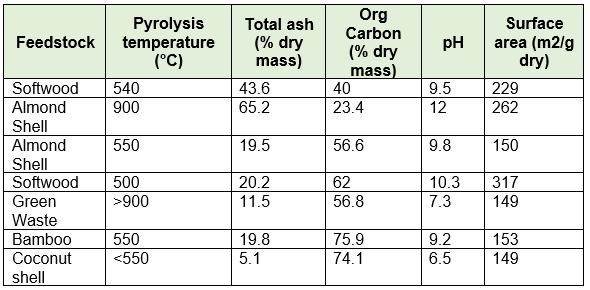Project Title: Soil Biochar Amendment to Improve Nitrogen and Water Management
Project Leader: Suduan Gao, Research Soil Scientist, USDA-ARS
Project Location: San Joaquin Valley
Year of Study: Two of three
Overview: The goal of this study is to determine the overall benefits and best practices associated with the use of biochar, as a soil amendment, in vegetable crop production systems.
Issue: Nitrogen is an essential nutrient for crop growth, but without proper management, it can have direct environmental and human health impacts. Nitrate (NO3–) that is not taken up by the crop can be leached from the root zone and contaminate groundwater. Additionally, ammonium (NH4+), not used by the plant, can volatilize as ammonia and have a detrimental effect on air quality and human health (Figure 1). To reduce nitrogen loss to groundwater and the atmosphere and mitigate environmental impacts, Dr. Gao and her team are examining the capabilities of biochar to adsorb ammonium and nitrate.

Figure 1: Pathways that lead to N volatilization. Factors influencing these pathways include nitrogen source, soil pH, fertilizer placement and soil temperature. For more information on how these factors affect ammonia volatilization visit http://www.ipni.net/publication/nitrogen-en.nsf/0/B219184650778DB985257DD60005826A/$FILE/NitrogenNotes-EN-6.pdf
Methods: During 2018, the research team conducted a laboratory experiment to characterize seven biochars and determine their adsorption potential for NH4+ and NO3–. A summary of the characterization study can be found in Table 1.

Table 1. Selected properties of biochar produced from various feedstocks and pyrolysis temperature
To supplement the laboratory experiments, they are conducting field trials on onions and processing tomatoes to evaluate the effects of biochar incorporation on plant N uptake, ammonia volatilization and nitrate leaching. The field treatments include three irrigation levels with or without biochar amendments. The two biochars used were the almond shell char 550°C and softwood char 540°C.
Preliminary Results:
Both the adsorption of NH4+ and NO3– were tested in the laboratory on the seven biochars. The characterization study showed a positive relationship between higher organic carbon density and NH4+ adsorption. It also showed that higher pyrolysis temperatures and a pH above 9 may have a negative effect on adsorption capacity. The seven biochars are listed in Figure 2 with their relative ability to adsorb NH4+.
Of the seven biochars tested and characterized, none showed significant adsorption for NO3–.

Figure 2: The relative adsorption of each biochar material with NH4+
The data from the first year of field trials on onions showed that there was no significant difference in plant growth or N uptake between the biochar and irrigation treatments. However, higher N leaching was observed in biochar treatments, which supports the lab adsorption data mentioned above. The preliminary results from the tomato trial show similar trends where there were no significant differences among the treatments in ammonia volatilization and nitrate leaching. More results from the field trials will be available upon the completion of this project.
Impact:
While the laboratory experiment provided some evidence that biochar has the capacity to adsorb ammonium, data from the field trials suggests that the presence of biochar may not have a significant effect on N volatilization or leaching. However, biochar amendments may have the potential to improve soil health and productivity and help support a sustainable agricultural production system. The potential of biochar to increase soil organic carbon and improve soil physical properties should not be overlooked.
For more information, the full project proposal can be found at: https://www.cdfa.ca.gov/is/docs/16-0597-SA_Gao.pdf.


